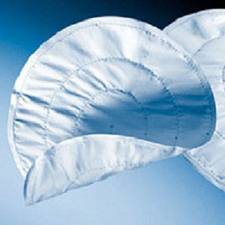 Legal claims are being brought by injured women who have undergone surgery to implant transvaginal mesh and pelvic/bladder support medical devices.
Legal claims are being brought by injured women who have undergone surgery to implant transvaginal mesh and pelvic/bladder support medical devices.
Transvaginal mesh and pelvic/bladder support medical devices are used to treat stress urinary incontinence (SUI) and pelvic organ prolapse (POP). These two conditions result in the weakening of of the pelvic region – a common problem after a hysterectomy or childbirth.
On July 13, 2011, the FDA released a medical alert after receiving reports of over 1500 cases where the use of transvaginal mesh and pelvic/bladder support devices caused serious injury to women. The FDA warned physicians that: (1) in most instances the risk of serious injury outweighed all purported benefits associated with the medical devices; (2) traditional procedures that do not use polypropylene mesh devices should be the primary course of treatment; and (3) the implantation of vaginal mesh/pelvic devices should be limited to last resort treatment cases. The reported injuries that these devices are inflicting upon women include:
1. Erosion of mesh into the vagina
2. Serious infection
3. Urinary problems
4. Pelvic pain
5. Vaginal pain
6. Hardening of the mesh
7. Injury to nearby organs
8. Painful intercourse
9. Recurrence of pelvic organ prolapse and stress urinary incontinence
10. Perforations created by the mesh in the bowel, bladder and/or blood vessels
11. Vaginal scarring and other complications
A recent clinical study was conducted to determine the safety of these products. The study was stopped because the problems being seen in the study in patients were too severe. More than 15% of the women in the study experienced the dangerous and painful condition known as “erosion” of the vaginal tissue in which the skins splits and the mesh protrudes. Sabatini and Associates, LLC is actively investigating legal claims on behalf of women who are alleging serious injuries associated with vaginal mesh and the firm is currently accepting new clients involving transvaginal mesh and pelvic/bladder support products.


